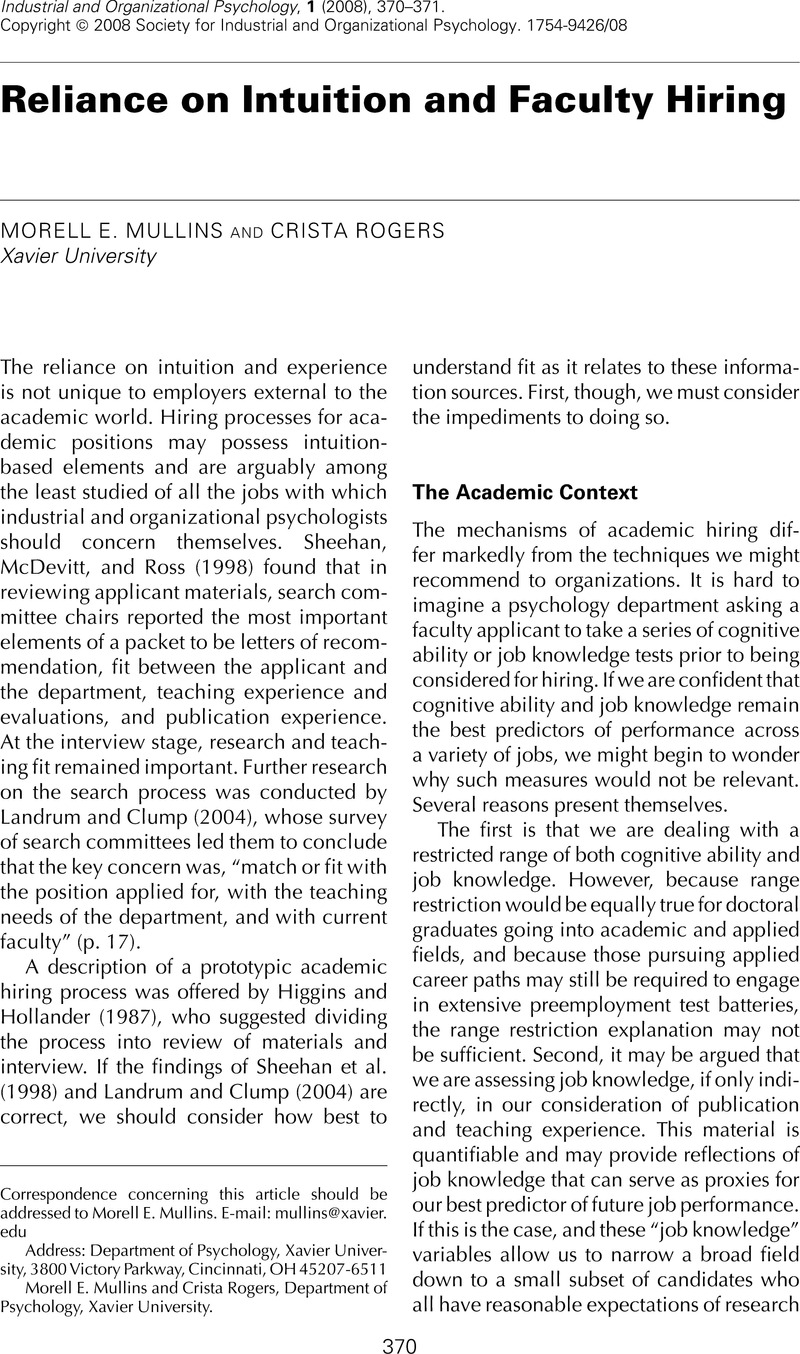Crossref Citations
This article has been cited by the following publications. This list is generated based on data provided by Crossref.
Highhouse, Scott
2008.
Facts Are Stubborn Things.
Industrial and Organizational Psychology,
Vol. 1,
Issue. 3,
p.
373.
Huang, Tori
and
Souitaris, Vangelis
2016.
Switching Cognitive Gears: How Intuitive Interruptions Benefit Analytic Processes During Complex Decision Making.
SSRN Electronic Journal ,
Burton, Jason W.
Stein, Mari‐Klara
and
Jensen, Tina Blegind
2020.
A systematic review of algorithm aversion in augmented decision making.
Journal of Behavioral Decision Making,
Vol. 33,
Issue. 2,
p.
220.



